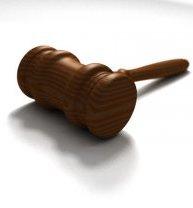|
|
How to write a Personal Grievance letter To bring a personal grievance for unjustified or unfair dismissal against your employer you must start by raising the grievance with them. To bring a personal grievance for unjustified or unfair dismissal against your employer you must start by raising the grievance with them.To raise a personal grievance for unfair dismissal you do not necessarily have to make a written complaint. You are only required to make the employer aware, or take reasonable steps to make them aware, that you allege a personal grievance on the basis of unjustified dismissal. However, resolving your claim will be much easier if you put your personal grievance in writing, stating the nature of the grievance, the relevant facts and the remedies you want to resolve the matter. It is also important to ask for a response within a reasonable time frame. There is a time limit of 90 days to submit your personal grievance to the employer. It is important that you take action quickly. If you do not submit your personal grievance withn 90 days the employer does not have to consider the grievance and you won't be able to get help from the Employment Relations Authority of the Department of Labour unless there are exceptional circumstances. Writing your personal grievance letter:Writing your personal grievance letter for unjustified/unfair dismissal is the most important step of your claim. This letter creates the foundation of your personal grievance claim and will be relied on throughout the rest of the process. Because it is so important we recommend you take a number of steps before you start writing your letter. The following steps should take you approximately 30 minutes. Grab a pen and paper and make sure that you will not be interrupted so you can fully focus on your problem. The starting point is to get clarity on the nature of your situation. To do this you will need to ask yourself a number of questions about events that took place. It is critical to write down as much detail as possible. STEP 1 - What happened before your dismissal?For the next 10 minutes write down what ever comes to your mind when you think about what happened to you. Don’t worry about getting any order to it … just write. Here are a few questions to get you going ….
STEP 2 - Important Meetings and Dates before your dismissalNext. Write a list of events. Include the date, time, venue, who was there and one (short) sentence on what the event was.STEP 3 - The Documents relating to your dismissalMake a list of documents you have. Include your employment agreement, any warnings, diary notes, letters, payslips etc. Put them together in a folder or envelope.Note: If you have been dismissed you should request the reasons for your dismissal in writing from your employer. STEP 4 - The Employer’s detailsWrite down the name and contact details of your employer. If you are not sure of the legal name of the company you can search by company name or director through the companies office at www.companies.govt.nz. You will find the registered address for service here as well.STEP 5 - Check for Gaps in your informationNow … go back to your first page and read through what you wrote from Step 1 to 4. Is there anything missing? Does anything else come to mind that might be important? Write it down.STEP 6 - Remedies for Personal GrievancesThe final step is to think about the remedies you want. What will resolve your personal grievance for you?An employee with a personal grievance claim for unjustified dismissal may ask the employer for any remedy the employee thinks appropriate. The remedies available to you will depend on the circumstances of your case. An experienced employment representative will be able to give you a better idea. Determining the possible remedies that could be available to you is more of an art than a science. The more case law you read the better your ability to be able to predict what you could get. For now, just write down what would resolve it for you. The main categories of remedies available at the Employment Relations Authority are listed below:
STEP 7 - Get advice from an Employment Representative or Employment ConsultantOver 80% of employees who pursued a personal grievance for unjustified or unfair dismissal to mediation have had some form of professional advice. We believe the reason for this is because it is very difficult to be objective, impartial and clear about your claim when you are trying to represent your self. It is also of considerable advantage to have someone who is familiar with employment law and the processes of mediation on your side.STEP 8 - Write your letterYou now have all the information you need to write your letter. Want to make your letter look really professional and say all the right things? For a small fee we can send you a link to download our Personal Grievance Letter template.
|

